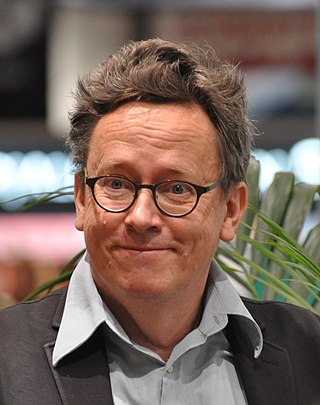Related Research Articles

Marvin Lee Minsky was an American cognitive and computer scientist concerned largely with research of artificial intelligence (AI). He co-founded the Massachusetts Institute of Technology's AI laboratory and wrote several texts concerning AI and philosophy.

Helsinki University of Technology was a technical university in Finland. It was located in Otaniemi, Espoo in the Helsinki metropolitan area. The university was founded in 1849 by Grand Duke of Finland, Emperor Nicholas I and received university status in 1908. It moved from Helsinki to Otaniemi campus area in 1966. The merger of HUT with two other schools created the Aalto University in 2010, and HUT briefly held the name Aalto University School of Science and Technology before being split into four schools in 2011.
Geoffrey Everest Hinton is a British-Canadian computer scientist and cognitive psychologist, most noted for his work on artificial neural networks. From 2013 to 2023, he divided his time working for Google and the University of Toronto, before publicly announcing his departure from Google in May 2023, citing concerns about the risks of artificial intelligence (AI) technology. In 2017, he co-founded and became the chief scientific advisor of the Vector Institute in Toronto.

Lappeenranta-Lahti University of Technology LUT, better known by the abbreviation LUT University is a Finnish public research university which was established in 1969. The university's Lappeenranta campus is situated on the shore of lake Saimaa – the 4th largest lake in Europe. LUT University's second campus is in the Finnish city of Lahti. The university also has research units in the Finnish cities of Mikkeli and Kouvola, as well as a regional office in Brussels, Belgium.

Teuvo Kalevi Kohonen was a Finnish computer scientist. He was professor emeritus of the Academy of Finland.

Sankar Kumar Pal is a computer scientist and the President of the Indian Statistical Institute (ISI), Kolkata. He is also a National Science Chair, Government of India. Prof. Pal is a computer scientist with an international reputation on pattern recognition, image processing, fuzzy neural network, rough fuzzy hybridization, soft computing, granular mining, and machine intelligence. He pioneered the development of fuzzy set theory, and neuro-fuzzy and rough-fuzzy computing for uncertainty modelling with demonstration in pattern recognition, image processing, machine learning, knowledge-based systems and data mining. Prof. Pal is widely recognized across the world for his pioneering and extraordinary contributions in Machine Intelligence, Fuzzy Logic, Soft Computing and Pattern Recognition. This has made India a leader in these disciplines in international scenario. He founded the Machine Intelligence Unit in 1993, and the Center for Soft Computing Research: A National Facility in 2004, both at the ISI. In the process he has created many renowned scientists out of his doctoral students.

Raimo P. Hämäläinen is a professor emeritus at the Aalto University School of Science, Finland. Hämäläinen founded Systems Analysis laboratory at Aalto SCI in 1984. His research interests include systems intelligence, multiple-criteria decision analysis, sequential games, simulation, and energy modeling.

Jacek M. Zurada is a Polish engineer who serves as a Professor of Electrical and Computer Engineering Department at the University of Louisville, Kentucky. His M.S. and Ph.D. degrees are from Politechnika Gdaṅska ranked as #1 among Polish universities of technology. He has held visiting appointments at Swiss Federal Institute of Technology, Zurich, Princeton, Northeastern, Auburn, and at overseas universities in Australia, Chile, China, France, Germany, Hong Kong, Italy, Japan, Poland, Singapore, Spain, and South Africa. He is a Life Fellow of IEEE and a Fellow of International Neural Networks Society and Doctor Honoris Causa of Czestochowa Institute of Technology, Poland.

Aalto University is a public research university located in Espoo, Finland. It was established in 2010 as a merger of three major Finnish universities: the Helsinki University of Technology, the Helsinki School of Economics and the University of Art and Design Helsinki. The close collaboration between the scientific, business and arts communities is intended to foster multi-disciplinary education and research.
Pierre Baldi is a distinguished professor of computer science at University of California Irvine and the director of its Institute for Genomics and Bioinformatics.
The IEEE Frank Rosenblatt Award is a Technical Field Award established by the Institute of Electrical and Electronics Engineers Board of Directors in 2004. This award is presented for outstanding contributions to the advancement of the design, practice, techniques, or theory in biologically and linguistically motivated computational paradigms, including neural networks, connectionist systems, evolutionary computation, fuzzy systems, and hybrid intelligent systems in which these paradigms are contained.

Yann André LeCun is a Turing Award winning French-American computer scientist working primarily in the fields of machine learning, computer vision, mobile robotics and computational neuroscience. He is the Silver Professor of the Courant Institute of Mathematical Sciences at New York University and Vice-President, Chief AI Scientist at Meta.

Timo Untamo Honkela was a computer scientist at the University of Helsinki, Aalto University School of Science and Aalto University School of Art, Design and Architecture. He holds a PhD from Helsinki University of Technology.
Kaisa Miettinen is a Finnish mathematician and the former vice rector of the University of Jyväskylä in Finland. She is a professor of industrial optimization with the Faculty of Information Technology, University of Jyväskylä, Finland. In addition, she heads the Multiobjective Optimization Group.

Sergei Anatolyevich Tretyakov is a Russian-Finnish scientist, focused in electromagnetic field theory, complex media electromagnetics and microwave engineering. He is currently a professor at Department of Electronics and Nanoengineering, Aalto University, Finland. His main research area in recent years is metamaterials and metasurfaces from fundamentals to applications. He was the president of the European Virtual Institute for Artificial Electromagnetic Materials and Metamaterials and general chair of the Metamaterials Congresses from 2007 to 2013. He is a fellow/member of many scientific associations such as IEEE, URSI, the Electromagnetics Academy, and OSA. He is also an Honorary Doctor of Francisk Skorina Gomel State University.

Janusz Kacprzyk is a Polish engineer and mathematician, notable for his contributions to the field of computational and artificial intelligence tools like fuzzy sets, mathematical optimization, decision making under uncertainty, computational intelligence, intuitionistic fuzzy sets, data analysis and data mining, with applications in databases, ICT, mobile robotics and others.

Nadarajah Asokan is a professor of computer science and the David R. Cheriton Chair in Software Systems at the University of Waterloo's David R. Cheriton School of Computer Science. He is also an adjunct professor in the Department of Computer Science at Aalto University.
Aapo Johannes Hyvärinen is a Finnish professor of computer science at the University of Helsinki and known for his research in independent component analysis.
Alessio Lomuscio is a professor of Safe Artificial Intelligence at the Department of Computing at Imperial College London. His research focuses on the verification of autonomous systems, specifically on providing formal safety guarantees for both Multi-agent systems as well as Machine Learning-enabled systems.
References
- ↑ "News: Erkki Oja appointed as Aalto Distinguished Professor". Aalto University. 13 June 2013. Retrieved 24 July 2017.
- ↑ Hertz, John; Krogh, Anders; Palmer, Richard G. (2018-03-08). Introduction to the Theory of Neural Computation (1 ed.). CRC Press. doi:10.1201/9780429499661. ISBN 978-0-429-49966-1.
- ↑ "Department of Information and Computer Science, E. Oja". users.ics.aalto.fi. Retrieved 2022-12-21.
- ↑ "MLSP Plenary Speakers". cogsys.imm.dtu.dk. Retrieved 24 July 2017.
- ↑ "Erkki Oja has been awarded the Frank Rosenblatt Award for his achievements in artificial intelligence research | Aalto University". www.aalto.fi. 4 September 2019. Retrieved 2022-12-21.